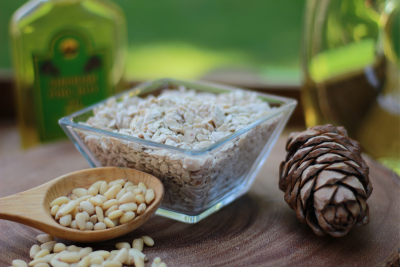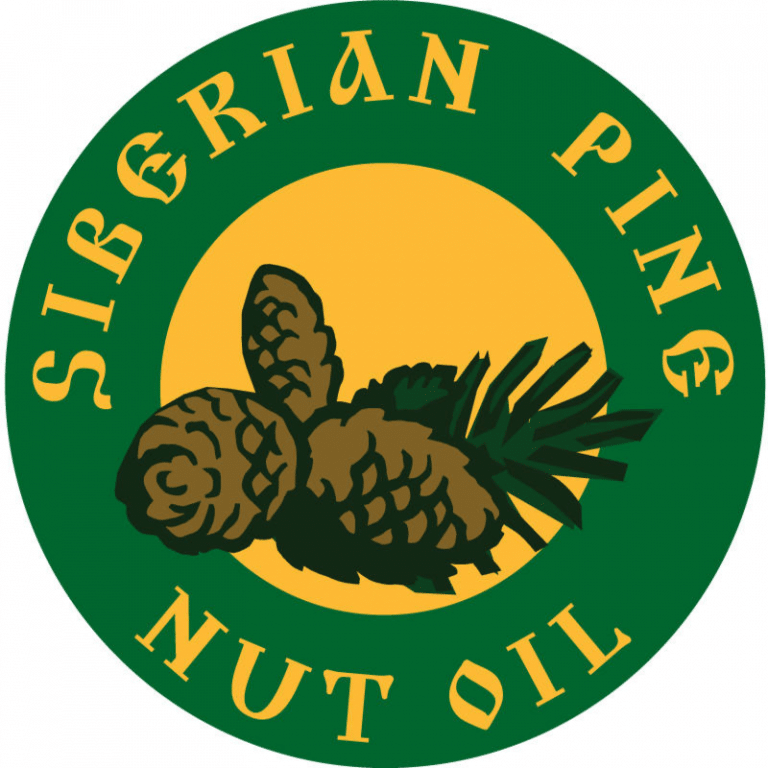Why should pine nut flakes be included in children’s diets?

Pine nut flakes have exceptional nutritional properties that can have a positive impact on the body. This product is especially beneficial for children, as its components can have a positive impact on their health and development.

Including pine nut flakes in the diet of children is a step towards their healthy and full development. Its rich composition, containing vitamin A and arginine, promotes quality growth and strengthens the immune system. At the same time, pine nut flakes can be easily integrated into various dishes, making it a convenient and tasty addition to children’s menus.
Benefits of vitamin A in the development of children
Vitamin A is one of the most important nutrients required for growth and development[1]. Children are particularly susceptible to vitamin A deficiency. One of the key functions of vitamin A is to maintain eye health. This vitamin promotes the formation of rhodopsin, a light-sensitive pigment that allows the eyes to better adapt to low-light conditions. Vitamin A deficiency can lead to night blindness or other vision problems.
Also, Vitamin A strengthens the immune system by improving the function of cells involved in fighting infections. It also promotes the synthesis of antibodies that protect the body from pathogens. Pine nut flakes containing vitamin A can be a great addition to the diet, especially during periods of increased illness, such as fall and winter.
Arginine and its role in the diet of children
Arginine is an amino acid that is of particular value to growing children[2]. It belongs to the group of essential amino acids, which means that the body cannot synthesize it in sufficient quantities on its own and it must be supplied by food.
Arginine plays an important role in the synthesis of proteins necessary for growth and tissue repair. For children who are in the phase of active growth, this is especially important. Sufficient arginine in the diet promotes muscle mass and bone health. Pine nut flakes contain up to 21 g of arginine per 100 g of protein.
Moreover, arginine supports brain function by participating in the synthesis of nitric oxide. This compound helps improve blood circulation in the brain, which in turn has a positive effect on cognitive functions such as memory, attention, and learning.
How to include pine nut flakes in the diet of children?
Pine nut flakes a universal product that has no specific taste and odor – only slightly sweet. Therefore, it can be included in almost all dishes of children’s diet, for example, in baked goods, desserts, breakfast – granola or oatmeal, in smoothies, cocktails, and even just in yogurt!
It is important to remember that pine nut flakes should not replace a complete diet, but only supplement it. To ensure a balanced diet, it should be combined with other foods containing essential vitamins and minerals such as fruits, vegetables, grains, fish, meat, and dairy products.
REFERENCES
[1] Effects of Food-Based Approaches on Vitamin A Status of Women and Children: A Systematic Review. Joyce Nankumbi, Frederick Grant, Lindiwe Sibeko, Evelyn Mercado, Kristina O’Neil, Lorraine S. Cordeiro
[2] Arginine-dependent immune responses. Adrià-Arnau Martí i Líndez, Walter Reith
These articles come directly from researchers and are passed on to everybody. siberianpinenutoil.org assumes no liability for any content in these articles. For Educational purposes only. This information has not been evaluated by the Food and Drug Administration. This information is not intended to diagnose, treat, cure, or prevent any disease.

